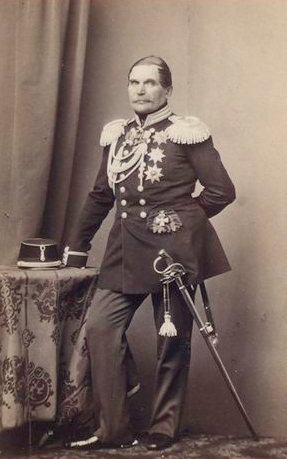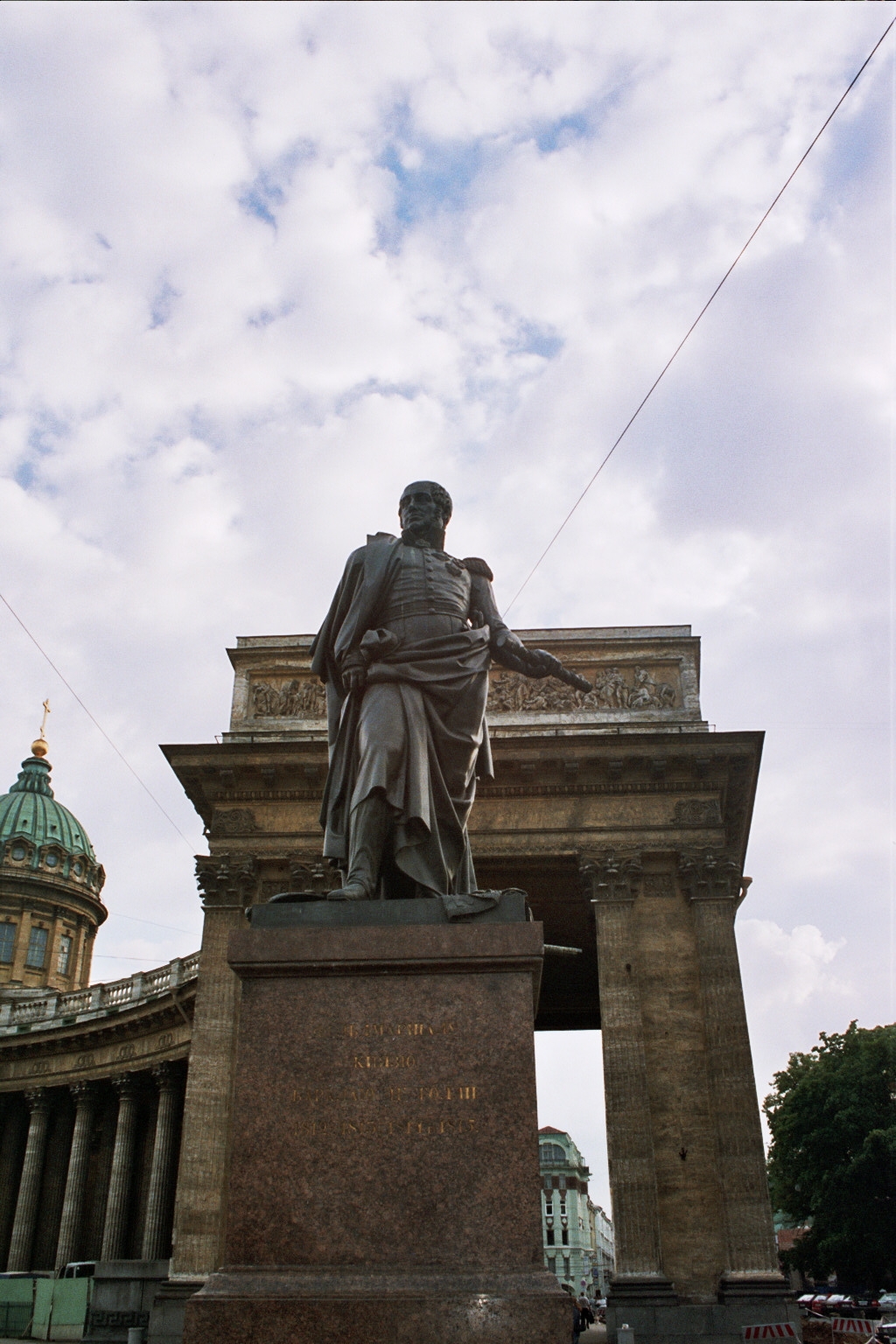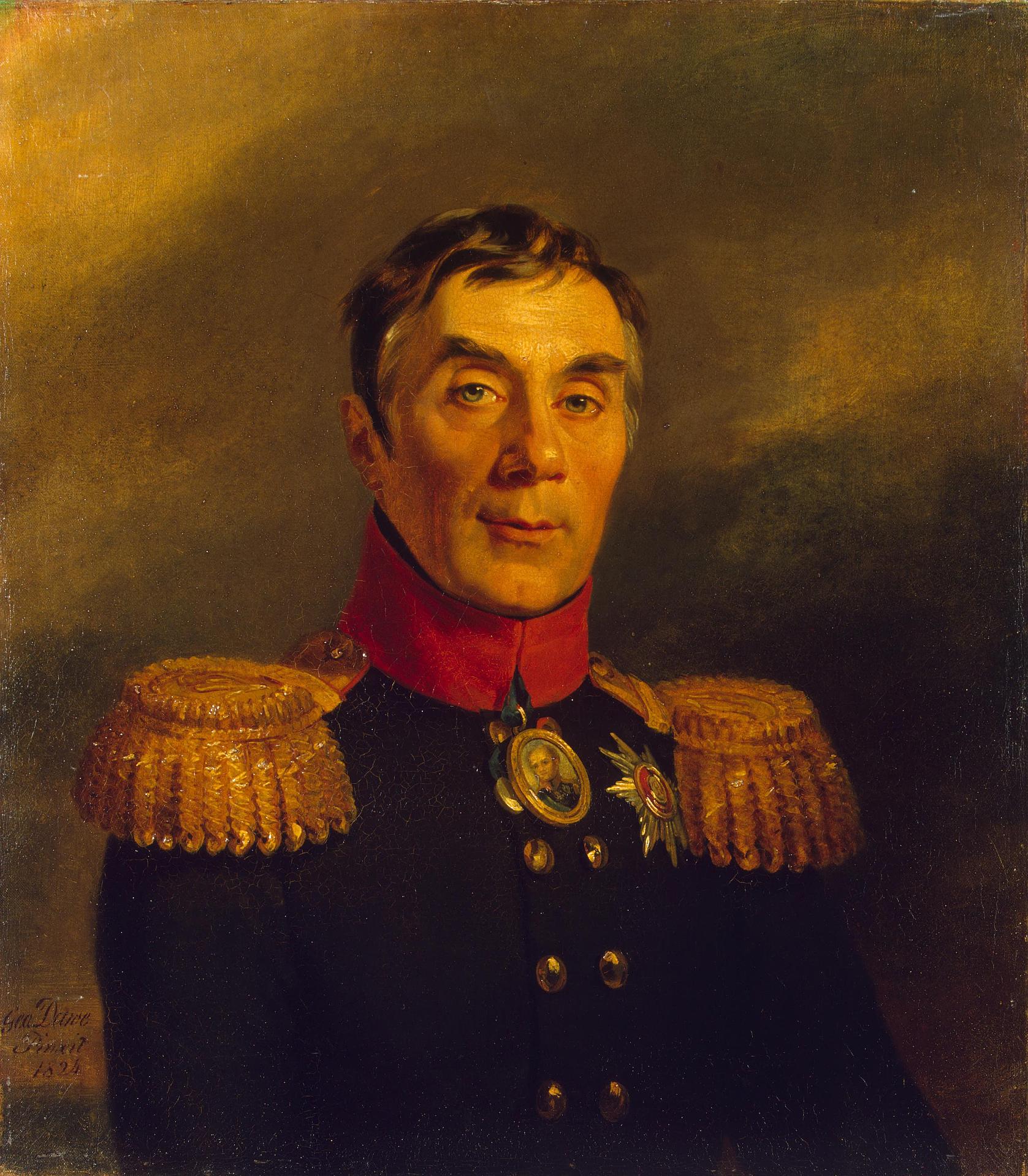|
Ministry Of War Of The Russian Empire
Ministry of War of the Russian Empire, (russian: Военное министерство, ''Military Ministry'') was an administrative body in the Russian Empire from 1802 to 1917. It was established in 1802 as the ''Ministry of ground armed forces'' (russian: Министерство военно-сухопутных сил) taking over responsibilities from the College of War during the Government reform of Alexander I. It was renamed to the ''Ministry of War'' in 1815. Structure At the end of the 19th century, the Ministry of War had following structure. * Military Council * War Ministry Chancellery * Grand Staff - personal matters, organization, instruction and economy of the army * His Imperial Majesty's Retinue * Departments: ** Commissariat Department ** Artillery Department ** Engineer (Military Technical) Department ** Military Medical Department ** Military Education Department ** Military Justice Department ** Department of Cossack Troops * Committees ** Committee o ... [...More Info...] [...Related Items...] OR: [Wikipedia] [Google] [Baidu] |
Russian Empire
The Russian Empire was an empire and the final period of the Russian monarchy from 1721 to 1917, ruling across large parts of Eurasia. It succeeded the Tsardom of Russia following the Treaty of Nystad, which ended the Great Northern War. The rise of the Russian Empire coincided with the decline of neighbouring rival powers: the Swedish Empire, the Polish–Lithuanian Commonwealth, Qajar Iran, the Ottoman Empire, and Qing China. It also held colonies in North America between 1799 and 1867. Covering an area of approximately , it remains the third-largest empire in history, surpassed only by the British Empire and the Mongol Empire; it ruled over a population of 125.6 million people per the 1897 Russian census, which was the only census carried out during the entire imperial period. Owing to its geographic extent across three continents at its peak, it featured great ethnic, linguistic, religious, and economic diversity. From the 10th–17th centuries, the la ... [...More Info...] [...Related Items...] OR: [Wikipedia] [Google] [Baidu] |
Alexander Chernyshyov
Prince Alexander Ivanovich Chernyshov (russian: Александр Иванович Чернышев, 1786, Moscow - 1857, Castellammare di Stabia), General of Cavalry (1827), was a Russian military leader, diplomat and statesman, whose career began in the Napoleonic Wars. After the Battle of Austerlitz (1805), he carried out successful diplomatic missions to France and Sweden and served with distinction in battles of 1812 and 1813. Chernyshyov rose through the ranks to the role of Russian Minister of War (1827–1852), chairman of the State Council of Imperial Russia, State Council and Cabinet of Ministers (1848–1856), and acquired the styles from Count (1826) to Serene Highness, Serene Prince (1849). Biography Austerlitz and Friedland Alexander Chernyshov was a son of Lieutenant General and senator, Ivan Lvovich Chernyshov. As soon as Alexander was born, his influential father "enlisted" him to the elite Mounted Guards Regiment (Конногвардейский полк) of Ru ... [...More Info...] [...Related Items...] OR: [Wikipedia] [Google] [Baidu] |
Dmitry Milyutin
Count Dmitry Alekseyevich Milyutin ( rus, Граф Дми́трий Алексе́евич Милю́тин, tr. ; 28 June 1816, Moscow – 25 January 1912, Simeiz near Yalta) was Minister of War (1861–81) and the last Field Marshal of Imperial Russia (1898). He played a major role in the Circassian genocide. He was responsible for sweeping military reforms that changed the face of the Russian army in the 1860s and 1870s. Early career Milyutin graduated from the Moscow University School in 1833 and Nicholas Military Academy in 1836. Unlike his brother Nikolai Milyutin, who chose to pursue a career in civil administration, Dmitry volunteered to take part in the Caucasian War (1839–45). After sustaining a grave wound, he returned to the military academy to deliver lectures as a professor. In the following years, Milyutin earned a considerable reputation as a brilliant scholar. He emphasized the scientific value of military statistics and authored the first comprehen ... [...More Info...] [...Related Items...] OR: [Wikipedia] [Google] [Baidu] |
Nikolay Sukhozanet
Nikolai Onufrievich Sukhozanet (russian: Никола́й Ону́фриевич Сухозане́т) (1794 – 22 July 1871) was an Imperial Russian Army general and statesman. Nikolai Sukhozanet was born in a noble family of Vitebsk guberniya. During the Napoleon's invasion of Russia he bravely fought in numerous battles and finished the campaign in Paris in the rank of lieutenant of artillery. His awards included Order of St. Vladimir of 4th degree and Order of St. Anna of 2nd degree. After the war he occupied different positions in the 1st Army and in 1824 was promoted to Major General. When the November Uprising began he led the Staff of artillery in the acting army. He distinguished himself in the Battle of Ostrołęka and received the Order of St. George of 3rd degree. From 1836 to 1849 he commanded the 4th artillery division. From 1849 until the Battle of Chernaya River of Crimean War he commanded the artillery of the acting army, after that Sukhozanet got the 3rd C ... [...More Info...] [...Related Items...] OR: [Wikipedia] [Google] [Baidu] |
Vasily Andreyevich Dolgorukov
Prince Vasily Andreyevich Dolgorukov (russian: Князь Василий Андреевич Долгоруков; 1804–1868) was a Russian statesman, General of the Cavalry (1856, a full General equivalent), Minister of War (1852–1856), Chief of Gendarmes Wrong info! --> A gendarmerie () is a military force with law enforcement duties among the civilian population. The term ''gendarme'' () is derived from the medieval French expression ', which translates to "men-at-arms" (literally, " ... and Executive Head of the Third Section of H.I.M. Chancellery (1856–1866). Honours and awards * Order of St. Vladimir, 1st and 4th classes * Order of St. Anna, 2nd class * Order of St. Andrew External links 1804 births 1868 deaths Vasily Andreyevich Chiefs of the Special Corps of Gendarmes Members of the State Council (Russian Empire) Recipients of the Order of St. Vladimir, 1st class Recipients of the Order of St. Anna, 2nd class Burials at Lazarevskoe Ce ... [...More Info...] [...Related Items...] OR: [Wikipedia] [Google] [Baidu] |
Aleksander Tatischev
Alexander is a male given name. The most prominent bearer of the name is Alexander the Great, the king of the Ancient Greek kingdom of Macedonia who created one of the largest empires in ancient history. Variants listed here are Aleksandar, Aleksander and Aleksandr. Related names and diminutives include Iskandar, Alec, Alek, Alex, Alexandre, Aleks, Aleksa and Sander; feminine forms include Alexandra, Alexandria, and Sasha. Etymology The name ''Alexander'' originates from the (; 'defending men' or 'protector of men'). It is a compound of the verb (; 'to ward off, avert, defend') and the noun (, genitive: , ; meaning 'man'). It is an example of the widespread motif of Greek names expressing "battle-prowess", in this case the ability to withstand or push back an enemy battle line. The earliest attested form of the name, is the Mycenaean Greek feminine anthroponym , , (/Alexandra/), written in the Linear B syllabic script. Alaksandu, alternatively called ''Alakasandu'' or ... [...More Info...] [...Related Items...] OR: [Wikipedia] [Google] [Baidu] |
Aleksey Gorchakov
Prince Aleksey Ivanovich Gorchakov (russian: Алексе́й Ива́нович Горчако́в; – ) was a Russian general and statesman from the Gorchakov family. Biography Aleksey Gorchakov was a son of Prince Ivan Gorchakov and a sister of the noted Russian ''generalissimo'' Alexander Suvorov. Born in Moscow, he enlisted in the Lifa Guard Preobrazhensk Regiment in 1774, and began his service several years later in 1781. In 1786 he entered the regular army as a captain and served with distinction (as an adjudant) under his uncle Suvorov in the Turkish War of 1787–92. Gorchakov distinguished himself in the campaigns of 1789 at Akerman, at Ochakov, the latter for which he received the Order of St. George (4th class) as well as being promoted to lieutenant colonel and becoming an adjudant to Prince Potemkin, at Kaumany, at Bender and in the campaign of 1790. In 1790 he was promoted to colonel of Azov regiment. In 1792 he fought in the Poland (Polish–Russian War of ... [...More Info...] [...Related Items...] OR: [Wikipedia] [Google] [Baidu] |
Michael Andreas Barclay De Tolly
Prince Michael Andreas Barclay de Tolly (german: Fürst Michael Andreas Barclay de Tolly; baptised – ) was an Imperial Russian soldier of Baltic German and Scottish origin, who was commander-in-chief and Minister of War of the Russian Empire during Napoleon's invasion in 1812 and the War of the Sixth Coalition. Barclay implemented a number of reforms during this time that improved supply system in the army, doubled the number of army troops, and implemented new combat training principles. He was also the Governor-General of Finland. He was born into a German-speaking noble family from Livonia, who were of Scottish descent. His father was the first of his family to be accepted into the Russian nobility. Barclay joined the Imperial Russian Army at a young age in 1776. He served with distinction in the Russo-Turkish War (1787–92), the Russo-Swedish War (1788–90), and the Kościuszko Uprising (1794). In 1806, Barclay began commanding in the Napoleonic Wars, distinguishin ... [...More Info...] [...Related Items...] OR: [Wikipedia] [Google] [Baidu] |
Alexey Andreyevich Arakcheyev
Count Alexey Andreyevich Arakcheyev or Arakcheev (russian: граф Алексе́й Андре́евич Аракче́ев) ( – ) was an Imperial Russian general and statesman during the reign of Tsar Alexander I. He served under Tsars Paul I and Alexander I as an army commander and Inspector of Artillery. He had a violent temper, but was a competent artillerist, and is known for his reforms of Russian artillery known as the "System of 1805". When Alexander was succeeded by Nicholas I, he lost all his offices. Early years Count Arakcheyev was born on his father's estate in Garusovo, in Vyshnevolotsky Uyezd (at the time a part of Novgorod Governorate, from 1796 part of Tver Governorate). He was educated in arithmetic by a priest, and though he shone at arithmetic, he never mastered writing and grammar. In 1783, with the help of General Peter Ivanovich Melissino, Arakcheyev enrolled in the Shlyakhetny artillery school in Saint-Petersburg. By 1787 he had become a lieutenant ... [...More Info...] [...Related Items...] OR: [Wikipedia] [Google] [Baidu] |
Minister Of Defence (Soviet Union)
The Minister of Defence of the Soviet Union refers to the head of the Ministry of Defence who was responsible for defence of the socialist Russian Soviet Federative Socialist Republic from 1917 to 1922 and the Soviet Union from 1922 to 1992. People's Commissars for Military and Naval Affairs (1917–1934) People's Commissar for the Armed Forces (1946) Ministers of the Armed Forces (1946–1950) Ministers of Defence (1953–1992) See also * College of War * Ministry of War of the Russian Empire * List of heads of the military of Imperial Russia * Ministry of Defense (Soviet Union) * Ministry of Defense Industry (Soviet Union) * Ministry of Defence (Russia) * General Staff of the Armed Forces of the Russian Federation ** Chief of the General Staff (Russia) The Chief of the General Staff (russian: Начальник Генерального штаба) is the head of the General Staff and the highest ranking officer of the Russian Arm ... [...More Info...] [...Related Items...] OR: [Wikipedia] [Google] [Baidu] |
_1890-1900.jpg)





